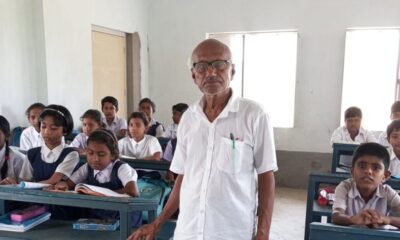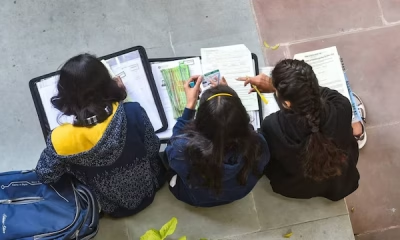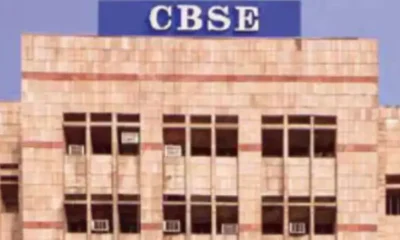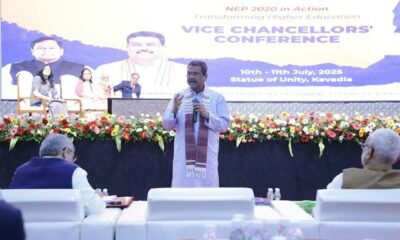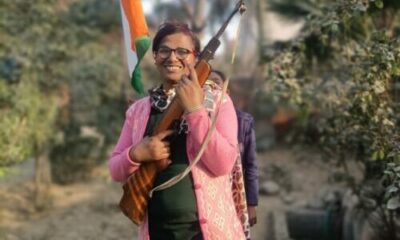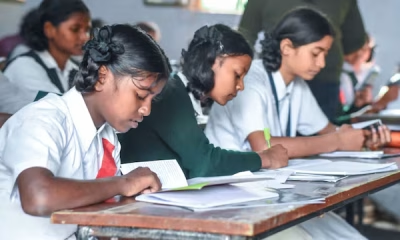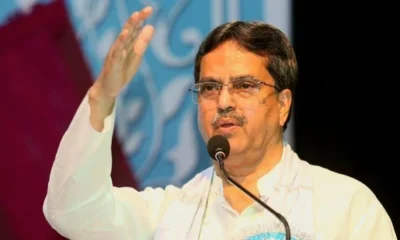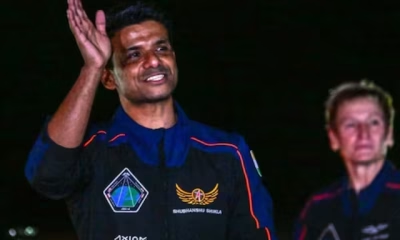News
ATL #TinkerFromHome For Students & Educators by Atal Innovation Mission
AIM of Niti Aayog came up with a brilliant solution at the beginning of the lockdown this dreadful year, Tinker From Home. While the schools were closed, this was AIM’s way of helping children learn with the same enthusiasm as they do in the ATAL Tinkering Labs.
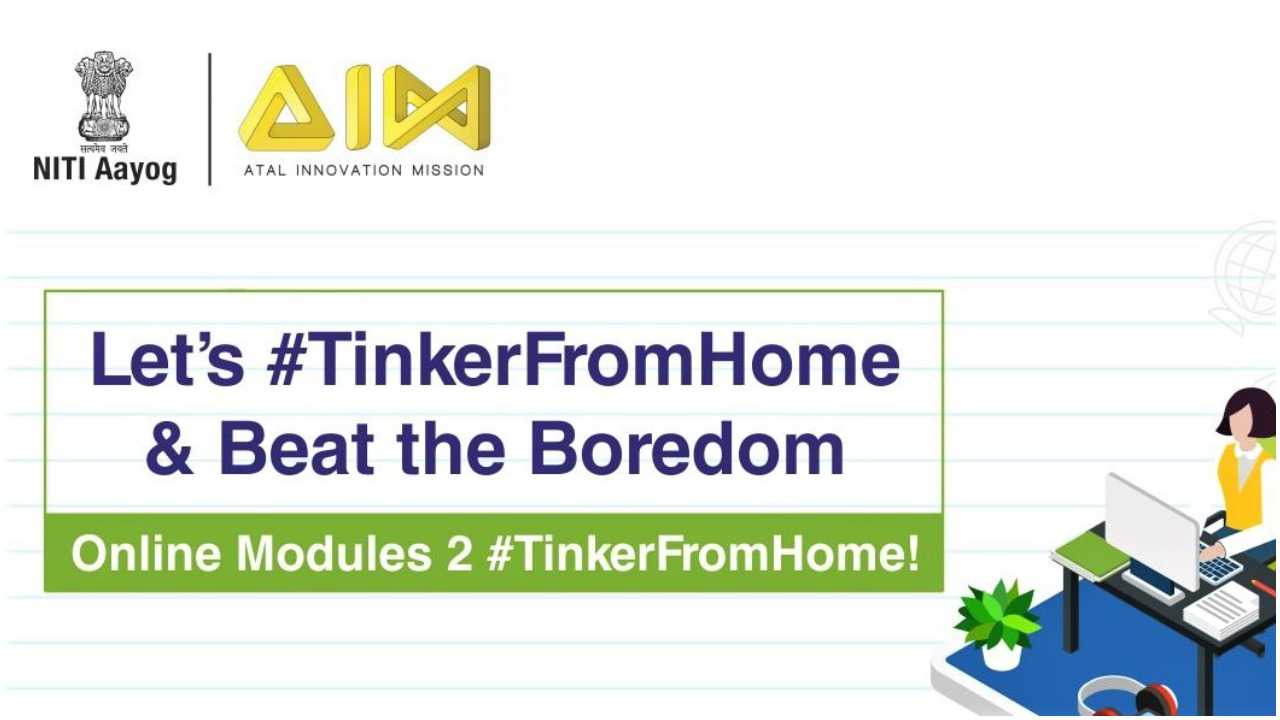
If one Googles #TinkerFromHome, they will come across a series of posts, tweets, pictures, videos and press releases from Niti Aayog’s Atal Innovation Mission (AIM). Amidst the COVID-19 lockdown crisis in the country, Atal Innovation Mission started with the “ATL Tinker from Home” campaign in March 2020, where students can learn new concepts and technologies and experience the joy of innovation from the safety of their homes. The objective of the initiative is to harness the creativity and innovativeness of children by encouraging learning through self-initiation.

A number of kids enrolled and educators of the nation have benefited from these many modules and ongoing webinars. Some of the most enrolled modules and most-watched webinars are listed below with the links to approach them. To add to the excitement, AIM comes up with regular competitions that get announced on days like Gandhi Jayanti and Community Day to keep the children involved. There are some competitions still running, check them out here.

ATL AI Base Module
Created in collaboration with NASSCOM, ATL AI Base Module aims at introducing young minds to the AI revolution. The hands-on module is available on the AIM website (https://www.aim.gov.in/Lets_learn_AI_Base_Module.pdf) and contains activities that enable young innovators to interact with different forms of Artificial Intelligence, view videos and engage in experiments.
Module Link – https://aim.gov.in/Lets_learn_AI_Base_Module.pdf
YouTube Tutorials Playlist – https://www.youtube.com/watch?v=JZbIfCUcX9k&list=PLe8QoqrwXb4SIpNfK59dMEpPKQVyh5kIO
YouTube LIVE Session – https://www.youtube.com/watch?v=yUNTnqff6mY

ATL Game Development Module
Developed in collaboration with DELL Technologies and Learning Links Foundation, ATL Gaming Module is an online platform to learn all about Game Development thereby providing an avenue to transform students from game players to game makers. The module is aligned with the Sustainable Development Goals and also contains a lot of interesting quizzes and projects for children to engage in. There are 3 different levels – Beginner, Intermediate and Advanced using different tools.
Module Link – http://bit.ly/ATLGamingModule
YouTube Tutorials Playlist – https://www.youtube.com/watch?v=ugtajDT2nrs&list=PLe8QoqrwXb4R8lgLQvxqR_kan1BLuukI3
YouTube LIVE Session – https://www.youtube.com/watch?v=1_TU400yxQY

ATL CollabCAD
Launched in collaboration with the National Informatics Centre (NIC), CollabCAD is an indigenous 3D Computer-Aided Design (CAD) Software. It provides a complete engineering solution for all things related to 3D Designing – right from 3D Product Part/Assembly Design to Visualization and Simulation. Students can use this software to design and materialize their ideas, creativity and innovation through 3D Printing.
Module Link – https://collabcad.gov.in/atlInfo.html
YouTube Tutorials Playlist – https://www.youtube.com/watch?v=7wAMou1D4Hw&list=PLe8QoqrwXb4TbRy7LUuWDSb3K0ouicJ-R
YouTube LIVE Session – https://www.youtube.com/watch?v=ChU3wLx4RAg
Astronomy Webinar Series
It's a seven(7) Lecture Series on Astronomy with Aryan Mishra, India's youngest Astronomer from Spark Astronomy.
YouTube Tutorials Playlist – https://www.youtube.com/playlist?list=PLe8QoqrwXb4T4r592QfIL1TNzeGA_HpaW

ATL App Development Module
The ATL App Development module has been launched in collaboration with Indian homegrown startup Plezmo with an aim to hone the skills of school students and transforming them from App users to App makers in the times to come under AIM’s flagship Atal Tinkering Labs initiative.
Module Link – https://bit.ly/ATLAppDevModule
YouTube LIVE Session – https://www.youtube.com/watch?v=mVCDVMG82G0
ATL AI Step Up Module
The advanced edition to the Base module, the ATL AI Step Up Module launched in collaboration with NASSCOM is an addition to the previous one with the objective to provide a student further understanding into AI once they’re done with the basic concepts with a series of activities, tutorials, mini projects and real-time applications.
Module Link – https://www.aim.gov.in/Lets_learn_AI_StepUp_Module.pdf
YouTube LIVE Session – https://www.youtube.com/watch?v=zuRRyuGhe3k

ATL Python Learning Module
It was developed in collaboration with Coding Elements, an Indian startup, with the objective to help teachers and students attain fundamental Python coding knowledge. It's meant to introduce them to the various concepts of text-based coding such as loops, syntax, OOP, etc.
Module Link – https://www.codingelements.com/python-foundation-course/
YouTube LIVE Session – https://www.youtube.com/watch?v=Vkf4gX6A9hg
ATL Webinar Series
A series of live sessions on various topics that happen every Friday on the AIM YouTube channel.
YouTube Channel Link – https://www.youtube.com/AIMtoInnovate
Tinkering with Drones with Drona Aviation
It's a series of webinars centred around the ATL Drone Module, to teach the students the fundamentals and concepts of Drone technology. The sessions were conducted by IITB Alumni StartUp Drona Aviation. Students in number of hundreads have participated in it so far.
3D Printing with Imaginarium
A series of webinars centred around the 3D printing technology, it's meant to teach the students the fundamentals and concepts of 3D design, 3D printer, Additive manufacturing. The sessions were conducted by Dr. Guruprasad Kuppu Rao, Imaginarium.
ATL Jigyasa Webinar Series with CSIR
AIM and CSIR have come together to foster science and innovation through various programs and initiatives. 20 interactive sessions with eminent Indian scientists have been conducted to initiate a dialogue on science and research.
In addition to these, several other training courses were done in collaboration with partners across the industries nationwide.
Education
NCERT Launches New Class 5 & 8 Textbooks, Makes Art Education Mandatory
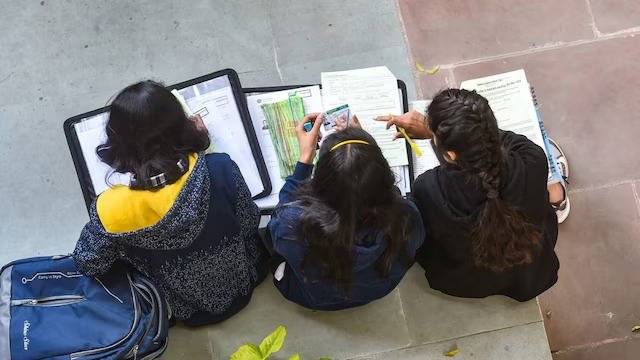
The National Council of Educational Research and Training (NCERT) has launched a new set of textbooks for Classes 5 and 8 for the 2025–26 academic session, designed in accordance with the National Education Policy (NEP) 2020 and the National Curriculum Framework for School Education (NCF-SE) 2023. This marks a significant shift in India’s school education approach, with a renewed focus on creativity, scientific temper, skill development, and values rooted in Indian heritage.
The new Class 8 textbooks include Curiosity (Science), Kaushal Bodh (Vocational Education), Poorvi (English), Malhaar (Hindi), and Kriti (Art Education). For Class 5, the newly introduced books are Santoor (English) and Veena (Hindi). Designed with simple language and rich visuals, these books aim to spark curiosity while enhancing concept clarity.
Among the highlights is Curiosity, the Class 8 science book that covers topics across physics, chemistry, and biology through real-life examples and activity-based modules. It includes dedicated chapters on COVID-19 vaccine development, India’s space missions like Chandrayaan, Ayurveda, and the Make in India initiative—positioning science education within the context of India’s modern achievements.
Kaushal Bodh introduces students to skill-based learning, preparing them for real-world employment and entrepreneurship. Poorvi, the Class 8 English book, presents stories based on the lives of national icons such as Major Somnath Sharma, Verghese Kurien, and physicist Bibha Choudhary to inspire values like courage and innovation.
In a landmark move, art education has been made compulsory. Kriti brings music, drama, and theatre into the mainstream classroom, as recommended by NEP 2020. This initiative aims to nurture creativity across disciplines, allowing children to express themselves beyond textbooks and tests.
For younger learners, the new Class 5 books Santoor and Veena adopt an activity-based learning model that promotes language acquisition through stories, songs, and play—departing from rote methods to make early education more engaging.
Despite enthusiasm from schools and parents, distribution has seen some hurdles. Reports indicate limited stock availability on platforms like Amazon and in local stores. Many parents and educators are urging NCERT to make digital versions of the books available in PDF format. NCERT has acknowledged the demand and plans to print over 15 crore copies to meet nationwide needs. Partnerships with e-commerce platforms are also being explored to streamline delivery.
This new textbook rollout is part of a broader national effort to reimagine the Indian classroom—rooted in local knowledge, focused on real-world skills, and responsive to 21st-century learning needs.
Education
US Embassy Tightens Social Media Checks for Student Visas

The U.S. Embassy in New Delhi has intensified its vetting process for applicants of F, M, and J non-immigrant visas by requiring disclosure of and public access to social media accounts used over the past five years. Under the updated rules, all social media handles—including Facebook, Instagram, Twitter, LinkedIn, TikTok, Reddit, and others—must be listed on the DS‑160 form, and profiles must be set to public during the visa screening process.
Consular officers are explicitly authorised to review candidates’ public posts, comments, and shares—and may even check private messages—to assess “hostility toward the United States” or support for extremist or anti‑U.S. content. Failure to comply, misrepresent information, or omit an account can result in visa denial and bar future visa eligibility.
This update forms part of a broader expansion of screening procedures initiated in June. Diplomatic posts worldwide paused student visa interviews to implement the new protocol, which treats every visa decision as a “national security decision”. The U.S. Embassy in India also recently issued a reminder via X, stating continuous monitoring of visa holders is in effect and violations of U.S. laws—even after visa issuance—can result in revocation and deportation.
These changes reflect the U.S. administration’s emphasis on enhanced national security and combating visa fraud. While some students and immigration advocates have raised concerns about privacy and freedom of expression, the Embassy stresses that visa screening is an ongoing process. Indian students and other applicants are advised to review their online activity and ensure transparency with their DS‑160 submissions.
Education
CBSE Requests Affiliated Schools to Host NIOS Public Exams in October–November 2025
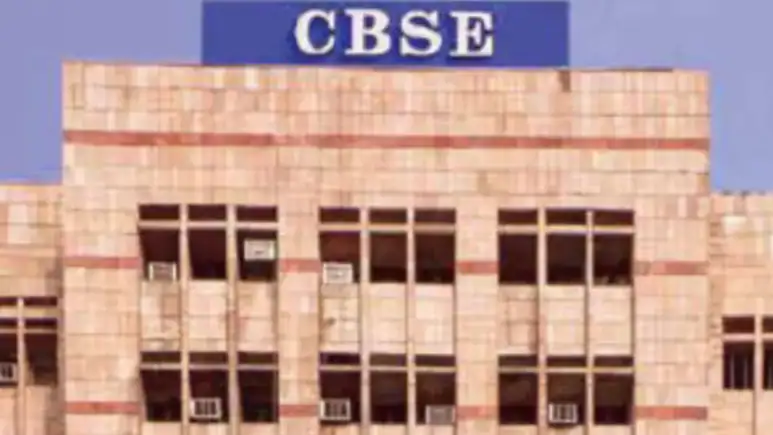
The Central Board of Secondary Education (CBSE) has called on its affiliated schools to assist with the conduct of the National Institute of Open Schooling (NIOS) public examinations scheduled for October–November 2025.
In a recent official communication addressed to principals and heads of schools, CBSE emphasised that NIOS requires infrastructural and logistical support to conduct its biannual board examinations, which include assessments for Class 10, Class 12, and various vocational courses.
“The next Public Examinations of NIOS are scheduled to be held in October–November 2025,” the notice stated, adding that CBSE-affiliated institutions have historically played a key role in enabling NIOS to run its exams smoothly.
Schools willing to extend support have been asked to register their intent on the official NIOS website at https://exams.nios.ac.in under the section: Examination Centre > Register Now.
NIOS operates under the Ministry of Education and is the country’s largest open schooling body. It caters to learners from diverse backgrounds, offering flexibility in learning and examination schedules, especially for students who may be outside the traditional school system.
“Your assistance will help NIOS in holding Public Examinations of its learners,” the CBSE notice concluded, underlining the collaborative nature of this effort.
By participating in this initiative, CBSE schools are not only supporting a national mandate for inclusive education but also contributing to educational equity by helping millions of NIOS learners access fair and organised exam environments.
Education
No More Backbenchers: How a Simple Seating Shift Is Reimagining Learning
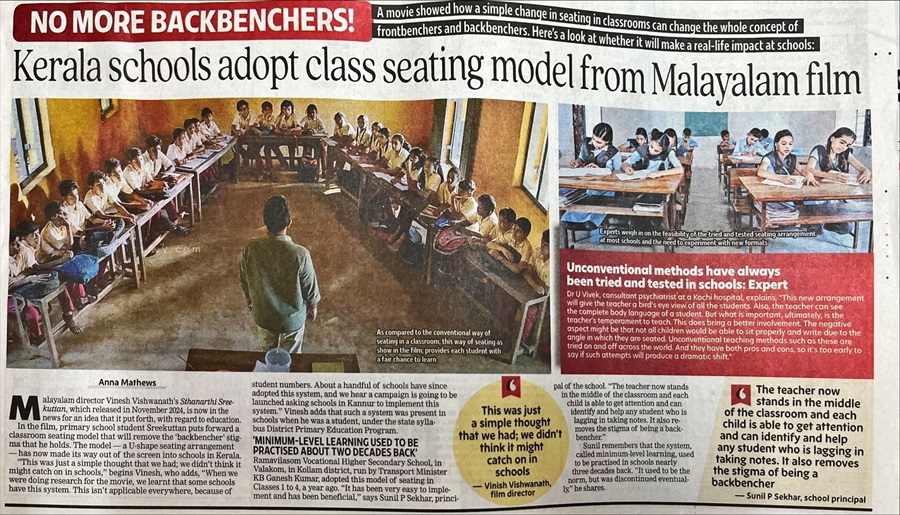
When was the last time you thought about where your students sit? If you think a seat is just a seat — think again.
A simple shift in seating arrangements, sparked by the Malayalam film Sthanarthi Sreekuttan, is inspiring schools in Kerala to break the age-old divide of “frontbenchers” and “backbenchers”. The Times of India recently reported how some schools have begun rethinking how rows of benches shape mindsets — often turning bright learners into passive listeners by default.
Preethi Vickram, Founder of Tapas Progressive Learning, applauded this unique approach online:
The truth is, classroom seating is more than furniture. It’s a mirror of our teaching philosophies. For decades, rigid rows have told students to sit down, face forward, and stay quiet while the teacher talks. One person speaks, everyone else absorbs. But learning doesn’t work in a straight line — it happens in loops, debates, disagreements, and those random questions that make everyone think.
It’s not just an emotional idea — there’s solid science behind it. A 2020 review in Frontiers in Psychology found that classroom layouts directly affect interaction and motivation. The Classroom Direct blog points out that flexible layouts foster collaboration, peer learning, and inclusivity. And a 2022 ESI Conference study noted that traditional seating can create power hierarchies where only frontbenchers thrive.
In India, we know this divide well. Backbenchers are often seen as mischievous or disinterested — but what if they were simply disengaged by design? Many schools still enforce outdated seating rules: girls must sit separately from boys; ‘weak’ students banished to the back; bright ones pushed to the front like prized trophies. But what are we telling children when we make them sit apart based on gender, marks or silence? That some voices matter more than others.
Architects and education designers have long championed a different approach. Rosan Bosch’s designs for Sweden’s Vittra School are modular and playful, showing that space itself can be a teacher. Danish Kurani, an expert in reimagining learning spaces, writes that the biggest mistake schools make is assuming they can modernise teaching methods without changing the physical space: “You can’t have collaborative, project-based learning in a classroom still set up for rows of passive listening.”
Kerala’s small but significant shift is a reminder that big change often starts with small, visible actions. When students sit in circles, clusters, or flexible pods, they are more likely to speak up, listen actively, and learn from one another. It helps break the silent stigma that ‘the back’ means you don’t matter.
Designers like Kurani argue that students should have a voice in how their classrooms look and feel — because when the space reflects curiosity and movement, it encourages the same in young minds. The Studio Schools Trust in the UK, the Reggio Emilia approach in Italy, and Big Picture Learning schools in the US all prove that flexible, student-centred learning environments are not “alternative” anymore — they’re the future.
And this shift doesn’t need fancy gadgets or big budgets. It’s the lowest-cost ‘edtech’ upgrade schools can make: moving a few benches, opening up a circle, creating nooks for quiet work and spaces for loud debate. It tells children: “Your voice matters, wherever you sit.”
In a world that needs more curiosity, connection, and creativity — we cannot afford to let seating stifle learning.
So let’s not just remove the backbenchers — let’s remove the very idea of front and back.
Because when every child feels seen and heard, there are no bad seats in the house.
References: * Classroom Direct Blog, 2021 * Frontiers in Psychology, 2020 * ESI Conference Proceedings, 2022 * Danish Kurani on Common Classroom Design Mistakes
Education
NEP 2020’s Panch Sankalpa to Guide Central Universities: Dharmendra Pradhan
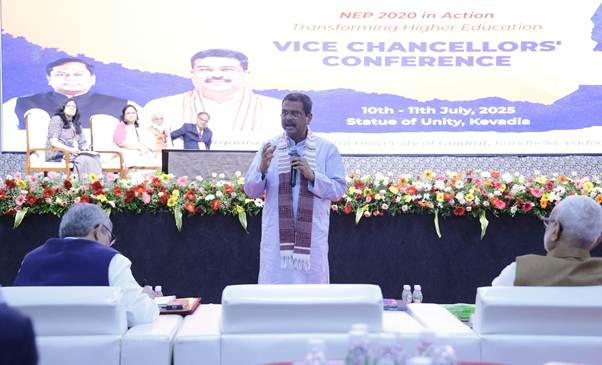
More than 50 Vice Chancellors of India’s central universities gathered in Kevadia, Gujarat for a two-day conference to assess the implementation of the National Education Policy (NEP) 2020 and lay the groundwork for the coming years. Organised by the Ministry of Education in collaboration with the Central University of Gujarat, the conference seeks to align higher education institutions with the broader national vision of Viksit Bharat by 2047.
Union Education Minister Dharmendra Pradhan, addressing the gathering, outlined the Panch Sankalpa of NEP 2020—next-generation education, multidisciplinary learning, innovation, holistic development, and Bharatiya orientation—as the guiding principles for institutional transformation. He emphasised that India’s higher education ecosystem has undergone significant change over the last decade, becoming more flexible, inclusive, and innovation-driven. Student enrolment has increased by 30% since 2014–15 to reach 4.46 crore, with female enrolment growing by 38%. The gross enrolment ratio for female students now exceeds that of males, while enrolment among Scheduled Castes and Scheduled Tribes has also improved. PhD enrolments have nearly doubled, with women registering a 136% increase.
The Minister urged Vice Chancellors to play a transformative role by redesigning curricula, improving digital infrastructure, strengthening faculty training, and promoting multidisciplinary education. He reiterated the goal of raising the gross enrolment ratio in higher education to 50% by 2035, in line with the NEP’s vision. Placing students at the centre of all reform efforts, he called on universities to foster job creators, ethical innovators, and socially responsible graduates.
Pradhan also encouraged institutions to reflect on India’s intellectual heritage while preparing for a global future, invoking the academic “Triveni Sangamam” of celebrating the past, calibrating the present, and creating the future. He recommended that each university prepare a strategy paper to fully implement NEP 2020, incorporating Indian Knowledge Systems, digital skilling initiatives, and campus-led innovations. He proposed that such review conferences be hosted at the campus level to promote decentralised engagement and exchange of ideas.
Dr. Hashmukh Adhia, Chancellor of the Central University of Gujarat, spoke about the six principles of karmayoga and the importance of Indian knowledge systems in shaping individual and collective progress. Dr. Vineet Joshi, Secretary of Higher Education, reflected on the journey since the policy’s launch and reiterated that NEP 2020 imagines universities not as degree-granting institutions, but as ecosystems of innovation, research, and holistic development. Dr. Sunil Barnwal, Additional Secretary, underlined the foundational values of access, equity, quality, affordability, and accountability, and highlighted the importance of stakeholder partnerships in driving reform.
Prof. Rama Shanker Dubey, Vice Chancellor of Central University of Gujarat, reaffirmed that all central universities are committed to advancing the vision of Viksit Bharat through concrete, on-ground measures. The conference, spread over ten thematic sessions, includes discussions on the Four-Year Undergraduate Programme, digital tools like SWAYAM and AAPAR, university governance through SAMARTH, alignment of education with the future of work, and research and innovation frameworks such as ANRF and PMRF. Other themes include equity, internationalisation, faculty development, and the integration of Indian languages and knowledge systems.
Participating universities include Jawaharlal Nehru University, University of Delhi, Tripura University, Central University of Rajasthan, Sikkim University, and many others. The outcomes of the conference are expected to help define the next phase of NEP 2020 implementation, enabling institutions to become more responsive, inclusive, and globally competitive.
Education
Less Than Half of Indian Schools Offer Skill-Based Courses for Senior Students: NCERT Survey

A recent survey conducted by NCERT’s National Assessment Centre has revealed that only 47% of schools across India currently offer any skill-based courses to students in Class 9 and above. This statistic highlights a significant gap in the availability of practical, job-ready education at the secondary level—an area that India’s New Education Policy has been aiming to strengthen.
The survey also found that student enrolment in these courses is even lower. Just 29% of students in Classes 9 and above have opted for skill-based subjects, indicating the need for better awareness, guidance, and integration of these programmes into mainstream learning.
The courses that are being offered include trending and industry-relevant subjects like Artificial Intelligence, Data Analytics, Digital Marketing, and E-commerce. However, experts believe these numbers are far from adequate in a country with one of the world’s largest youth populations.
At the higher education level, there is a stronger push for integrating skills into curricula. Many skill universities now structure their programmes with a 60% to 70% skill-based component, offering students a blend of theoretical and practical knowledge designed to make them workforce-ready.
The NCERT report recommends that more schools must be brought into the fold of skill education. With the job market rapidly evolving and the demand for digital and emerging technology skills growing, strengthening school-level skill education can bridge the gap between academic learning and real-world employability.
Building robust vocational streams in schools could also help address the challenge of students dropping out after secondary education due to a lack of clear pathways into meaningful careers.
Education
UP Govt Launches Astro Labs in Government Schools to Boost Scientific Learning
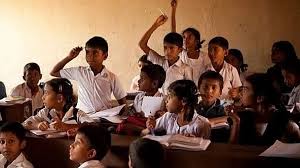
Under the leadership of Chief Minister Yogi Adityanath, the state is rolling out astro labs in government schools at the block level, aiming to strengthen scientific thinking and curiosity among school children, especially in rural areas.
According to a statement issued by the government, these labs—named Amrit Kaal Learning Centres—are being developed through a public-private partnership (PPP) model and are already operational in several districts.
The initiative is designed to give students access to real-time, hands-on learning experiences using tools like Dobsonian telescopes, VR headsets, microscopes, light experiment kits, and anatomical models. These tools go beyond textbook learning, allowing students to explore astronomy, gravity, light, and the physical world through direct experimentation.
Officials say the initiative has already made significant impact. In Ballia district, for example, science labs have been established in all 17 blocks to make science more engaging and inquiry-driven.
Ballia District Magistrate Mangla Prasad Singh said the labs are aligned with the state’s broader goal of making science accessible and meaningful. “These labs are designed to foster experiential and inquiry-based learning,” he noted.
Chief Development Officer Aojaswi Raj added that each lab costs between ₹2.5 to ₹3 lakh, including both the equipment and teacher training. The inclusion of orientation sessions, video guides, and mentorship support for teachers ensures that the labs are used effectively in classrooms.
“These labs have sparked genuine curiosity among children, who now ask questions, observe the night sky, and explore concepts far beyond the standard curriculum,” said Raj.
The program is part of a larger effort to bridge the gap between urban and rural education. With access to advanced tools and teacher support, children in villages are beginning to imagine careers in space science, inspired by stories like that of Indian-origin astronaut Shubhanshu Shukla.
The UP government hopes this initiative will help build a future-ready generation, where aspiration is not defined by geography, and the boundaries of scientific exploration begin right from the classroom.
Education
Class 3 Learning Levels Show Gains Since Pandemic, But Still Below 2017: PARAKH Survey
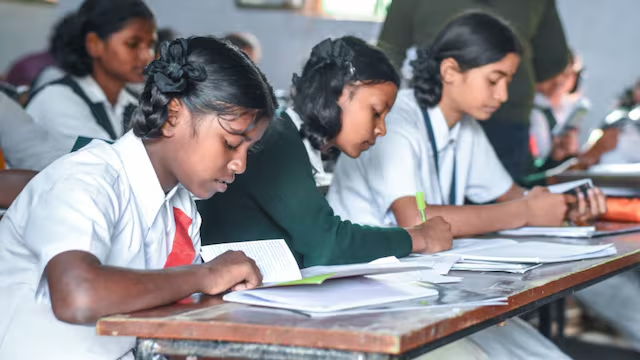
According to the government’s latest PARAKH Rashtriya Sarvekshan report released on Monday, Class 3 students across India have yet to return to pre-COVID academic levels. The survey, conducted in December 2024, covered more than 21 lakh students from Classes 3, 6, and 9 across 74,229 schools, offering a large-scale snapshot of student learning recovery after the pandemic.
Among the three grades, Class 3 is the only one surveyed in all three rounds (2017, 2021, and 2024) — allowing for direct comparison. While there has been an uptick in scores since the 2021 assessment, they remain below the national average recorded in 2017.
In 2024, Class 3 students scored an average of 64% in language, compared to 62% in 2021 — but still lower than 66.7% in 2017. In Mathematics, the score stood at 60%, up from 57% in 2021, but below the 63% recorded in 2017.
Students were found to struggle the most in reading short stories and understanding them (60%), while performing best in everyday language usage (67%). In Maths, the lowest scores came in geometry and money concepts (50%), with the strongest performance in identifying basic shapes and number patterns (69%).
The survey’s structure is aligned with the National Education Policy (NEP) 2020, which breaks school education into four key stages. Class 3 marks the end of the Foundational Stage, making it a crucial checkpoint for basic literacy and numeracy.
Classes 6 and 9: Scores Below 50% in Most Subjects
Students in Classes 6 and 9 showed average scores below 50% in all subjects except language, suggesting that older cohorts may be bearing the brunt of prolonged learning loss from pandemic-related school closures.
A senior official from the Ministry of Education noted that these grades missed nearly two full years of classroom instruction during a critical developmental period. Despite visible recovery since 2021, the learning gaps persist.
Why This Matters
The findings serve as a reminder of the lasting impact of the pandemic on India’s school education, especially for early learners. The report calls for targeted learning interventions, curriculum adjustments, and robust teacher support systems to help students recover foundational skills.
With only limited time before students transition into higher stages of schooling, the emphasis is now on accelerated catch-up strategies and deeper diagnostic assessments to address these persistent gaps.
Education
Punjab to Introduce Business, Marketing Education in Govt Schools for High Schoolers
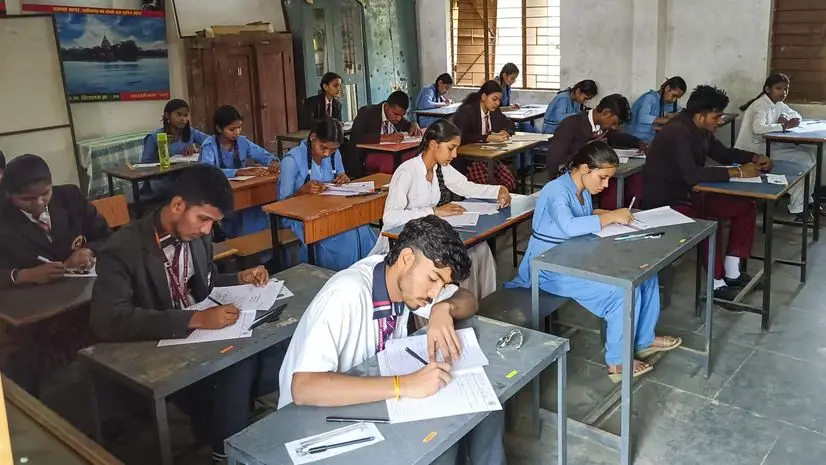
The Punjab government has announced that all Class 11 and 12 students in government schools will receive skill education in business and marketing from the upcoming academic session. The initiative is being implemented under the Punjab Young Entrepreneurs Scheme.
According to Education Minister Harjot Singh Bains, the programme aims to introduce basic entrepreneurship concepts to senior secondary students. As part of this, students will be required to develop and present business ideas as subject-linked projects. The state has also invested in setting up innovation labs in schools to support product development and technical training.
The initiative was formally presented at the Business Blasters Expo 2025, where student teams from various districts showcased business models to a panel of educators, industrialists, and startup professionals. According to official information, participating teams received financial support to take their ideas forward.
Some of the student-led projects included products such as handmade goods, natural cosmetics, customised simulators, framed artwork, and cycle-based mobility solutions. In one case, a student from Mullanpur Dakha created decorative items that were later sold in the market at a significantly higher margin.
The Education Minister also cited employment data between 2014–15 and 2021–22, pointing to a gap between job applicants and job placements. The scheme, he said, is being introduced with the aim of equipping students with skills relevant to today’s economic landscape.
Initially piloted in 30 schools, the Punjab Young Entrepreneurs Scheme is now being scaled across the state. The business and marketing module is expected to cover financial literacy, product development, market analysis, and customer outreach.
The government has stated that the curriculum will align with academic requirements while also supporting practical exposure. Further partnerships with technical institutions and industry stakeholders are also being explored.
Education
Manipur Rallies Call for Disruption-Free Education Amid Ongoing Unrest
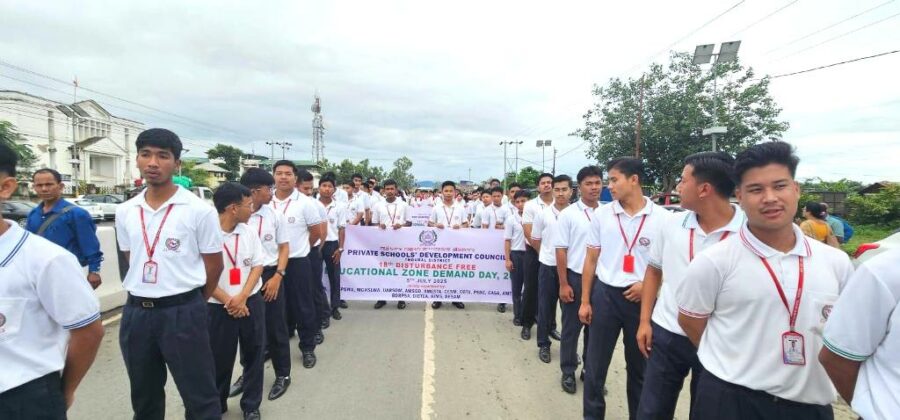
Thousands of voices echoed across the valley districts of Manipur on 5th July, as students, teachers, and civil society members marched in unison, demanding an uninterrupted and safe educational environment. Marking the 18th Disturbance-Free Education Zone Demand Day, the rallies were spearheaded by the Democratic Students’ Alliance of Manipur (DESAM), with support from over 15 civil society organisations.
Held across Imphal East, Imphal West, Kakching, Thoubal, and Bishnupur, the rallies were unified under the message: “Make Education a Disturbance Free Zone.” From THAU Ground near the Legislative Assembly to Imphal College, and similar routes in other districts, demonstrators walked with banners, placards, and resolute slogans calling for peace and protection of learning spaces.
This year’s observance comes at a particularly sensitive moment for the state, as Manipur continues to reel from over two years of ethnic conflict, political instability, and administrative disruptions. These challenges have had a disproportionate impact on the state’s education system—schools in conflict zones have been intermittently closed, exams postponed, and many children displaced from both their homes and classrooms.
Speaking to the media during the rally, DESAM President Mayengbam Somorjit urged the government to pass legislation mandating a minimum of 220 academic days per year, to ensure stability and learning continuity even during crises. He emphasized that children in Manipur must not be deprived of their right to education because of circumstances beyond their control.
Other demands included the appointment of Directors of Education from among experienced educators, and greater transparency in recruitment and promotion processes within the education department. There were also strong appeals to armed groups to abstain from placing financial or material demands on educational institutions—a practice that has led to school closures and security concerns in the past.
The rallies were largely peaceful and drew significant participation from both urban and rural communities. Protesters stressed that beyond political resolution, restoring education must become a humanitarian priority.
In the past two years, students in conflict-affected districts have faced regular school closures, sporadic internet blackouts, and mental health challenges, as families grapple with violence, displacement, and uncertainty. NGOs and local educators have warned of rising dropout rates, learning loss, and a deepening digital divide—especially in remote or vulnerable communities.
While the larger political crisis in Manipur continues to seek resolution, the message from students and educators is clear: education must be safeguarded. As one banner read during the march: “Books, not bullets. Peace, not pauses.”
-

 Education2 months ago
Education2 months agoCBSE’s ‘Sugar Boards’ Initiative: Tackling the Sweet Crisis in Indian Schools
-
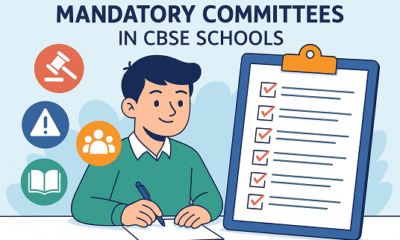
 Education3 months ago
Education3 months agoIs Your School Following These Mandatory CBSE Committees?
-
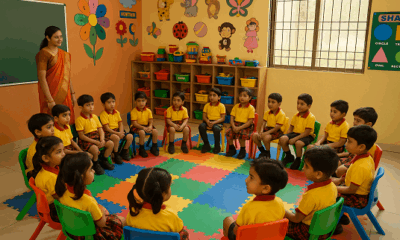
 Education3 months ago
Education3 months agoMaharashtra to Regulate Pre-Primary Education with New Law Aligned to NEP 2020
-
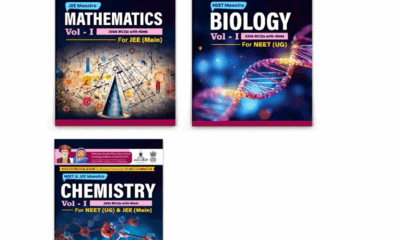
 Education3 months ago
Education3 months agoMAHAJYOTI’s Book Distribution Scheme to Empower 7,000 OBC Students Preparing for JEE/NEET & MHT-CET
-
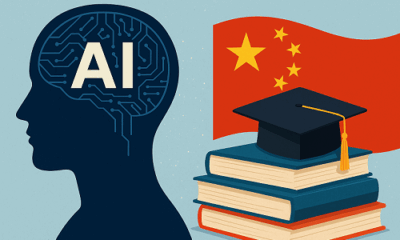
 Education3 months ago
Education3 months agoChina Embarks on Ambitious AI-Driven Education Reform to Build a ‘Strong Education Nation’ by 2035
-
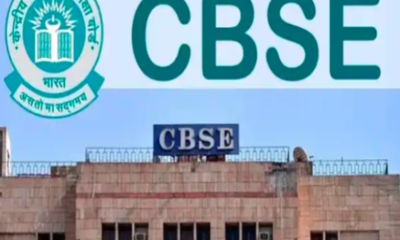
 Education3 months ago
Education3 months agoCBSE Introduces Mandatory Bridge Course for Classes 6 to 12 in Chhattisgarh Under NEP 2020
-
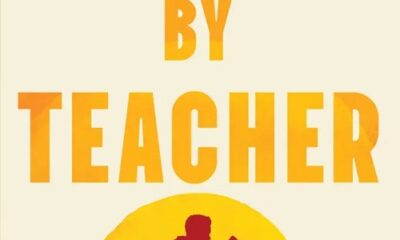
 Education2 months ago
Education2 months agoJohn King’s Book ‘Teacher By Teacher’: A Global Tribute to the Transformative Power of Education
-
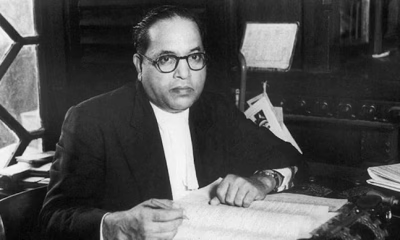
 Education3 months ago
Education3 months agoRewriting Ambedkar: Why Students Must Know the Man Beyond the Constitution
-
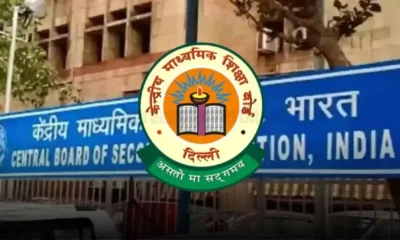
 Education3 months ago
Education3 months agoCBSE Mandates 50-Hour Annual Training for Teachers, Declares STEM as 2025 Theme
-
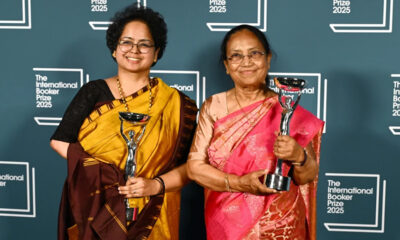
 Education2 months ago
Education2 months agoBanu Mushtaq’s International Booker Win Is a Wake-Up Call for Indian Schools to Reclaim Literature




